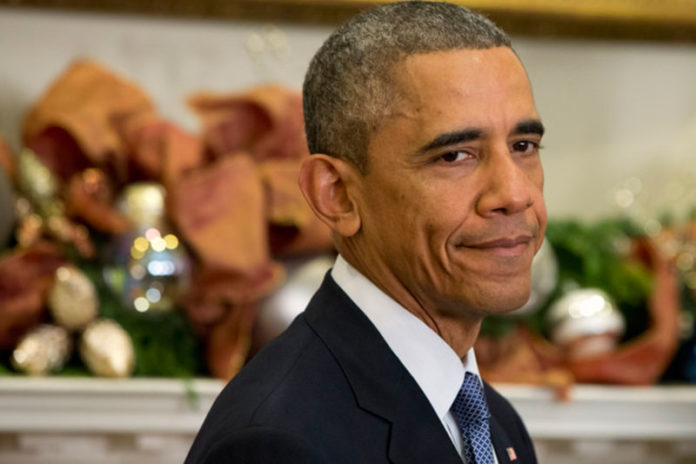One of the many outrageous concessions that President Barack Obama made in his “nuclear deal at any price” with Iran’s Mullahs was to ignore three Americans being held hostage in Iran on trumped up charges that include everything from spying to espionage.
At the time the deal was inked, the Obama Administration said they didn’t bring up the hostage issue during negotiations because they didn’t want any sticking points that might derail the agreement.
Obama’s “agreement” doesn’t stop Iran from enriching uranium, doesn’t allow for anywhere anytime inspections by western nuclear experts, tore up economic sanctions that had been hurting Iran’s economy, opened the floodgates on conventional weapons purchases and concluded with a $150 billion payment by the U.S. to Iran to close the deal.
In return, the Obama got America nothing but a worthless piece of paper that many experts say Iran has already violated by testing long-range nuclear capable ballistic missiles that are supposed to be prohibited under the “agreement”.
Now, as if to punctuate their contempt for Obama and the West, Iran has arrested an Iranian-American scholar and consultant who were in the country to improve relations between the United States and Iran.
The arrest is a clear sign that dual citizens from the United States who are visiting or living in Iran after the nuclear agreement was reached in July are at greater risk– not less– because of the deeply flawed nuclear deal.
Thomas Erdbrink, writing for The Washington Post, described Siamak Namazi as a consultant with the World Economic Forum Young Global Leader who was working on strategic planning at Crescent Petroleum, a subsidiary of the Crescent Group, a conglomerate based in the United Arab Emirates.
Mr. Namazi was taken into custody by Iranian Intelligence officers around Oct. 15 according to friends and is currently being held at Evin Prison in Tehran. News of Mr. Namazi’s arrest rekindled fears that Iran is continuing to engage in their hate based anti-Americanism that prevailed before the talks that led to the nuclear deal.
Erdbrink quoted Mark Toner, a deputy spokesman for the State Department, who issued a statement in response to queries about Mr. Namazi:
“We’re aware of recent reports of the possible arrest in Iran of a person reported to have U.S. citizenship. We’re looking into these reports and don’t have anything further to provide at this time.”
Members of Iran’s “rubber stamp” Parliament believe one imprisoned Iranian-American, Jason Rezaian, a correspondent for The Washington Post in Tehran, heads a network of spies. Mr. Rezaian, arrested in July 2014, was convicted of espionage this month by one of Iran’s kangaroo courts.
The Iranian police have also imprisoned Saeed Abedini, a Christian pastor, and Amir Hekmati, a Marine veteran, dashing hopes that they would all be freed after the nuclear accord was reached. Quoting Erdbrink’s article again:
“It’s not a good sign for those who want to open Iran to the West and the United States,” said Alireza Nader, an Iran specialist at the RAND Corporation in Washington.






























